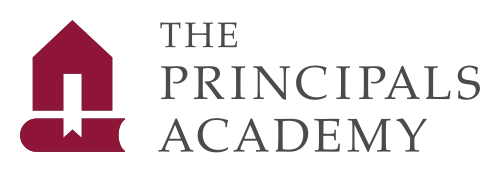ONE moment, ONE day, ONE school
Can you think of ONE person whose life you impacted this week? You’re a principal so the answer is many. If, like most heads, you have a presence about you and a passion for your school and its people, then it’s really many.
I love the concept of a new book for school leaders by Stephen Peters and Mark Wilson entitled ‘ONE’. A review reads: “‘ONE’ is an inspirational read about how to grow impact and effectiveness in your school one student, one educator, one act, one word and one opportunity at a time.” I love what this says about the teaching profession. You have the capacity to make a difference one minute at a time. As a principal, if you are reaching out to a learner, or including another, or recognising a teacher’s contribution, you are building buy-in one individual at a time, making the collective stronger. Be mindful of your impact as a principal and make full use of your moments.
I made a point of recording my MOMENTS as a principal, in writing, in detail, at the back of my diary or in a special place on my phone. Otherwise, they slip into oblivion. Each year in my annual speech at Prize- Giving, I would share my year’s memorable moments – usually ones the learners could relate to, original moments full of colour, character and always with a touch of humour. Each week the principals I visit share their moments of sadness, progress, and pride. Some of you photograph them and share them on social media. I promise you, it’s moments that your learners remember and, if you record them properly, you’ll cherish them long after you’ve retired. Usually, those moments speak volumes about your school’s values and your priorities as a principal. If you make a habit of sharing the special moments with your staff, they’ll share theirs with you. Together you build a place full of moments which define the heart and humanity of your school’s culture.
Interestingly, years after, your learners remember random moments, too, but far removed from what they learned in class and more related to who and how they were taught, with whom they learned and how teachers (and the principal) made them feel. Remember moments make a school and it’s the school climate, the structure, the opportunities your learners have to grow and shine which make the moments possible.
ONE day has become more than just one day when learners only attend on alternate days. How do we make the one day really count? This is absolutely crucial in the earlier years where the focus needs to be totally on building literacy and numeracy. Principal and teachers can make this work, but not by simply doing what we used to do when we had them every day. I always urged my team and our staff to come out into the corridor at the change of every period. They don’t like it and they’re busy with the logistics of starting a new lesson, but that joint commitment to making those transitions smooth and fast makes for a school that works.
Take ONE aspect of your school – let’s say ‘text’. Scratch deeper. How much are children writing today? Walk your school and gauge the number with books out and pens in hand. Keep a mental record. Randomly call children and see how much has been written in the three weeks of this term. What has been written? How well? Was it copied? Was it marked or checked? Get your deputy to help so that you are scratching deeper and allowing the one day to provide an accurate slice of your school’s core.
In conclusion, let’s take our word ‘one’ and place it simply in front of your school’s name. ONE Siyazakha. Think about a school unified in purpose and practice with systems which guarantee quality even before lessons start, which drive one collaborative standard, and which provide the data needed and the action required to support every child to achieve at her or his personal best. One Siyazakha, with all stakeholders on the same page is what Stephen Peters and Mark Wilson would facilitate if they brought the ONE programme to your school for a couple of weeks. Actually, they’re coaches, former principals just like your coach. That sort of journey to excellence, to ONE school, demands all round involvement, but indispensable leadership from the top. Your school has many leaders, but ONE principal. You’re that ONE.
Till next time.
Paul (Coach/Mentor)
Principals Academy
Keeping in Touch in Tough Times, #32 of 2021, 29 October 2021

